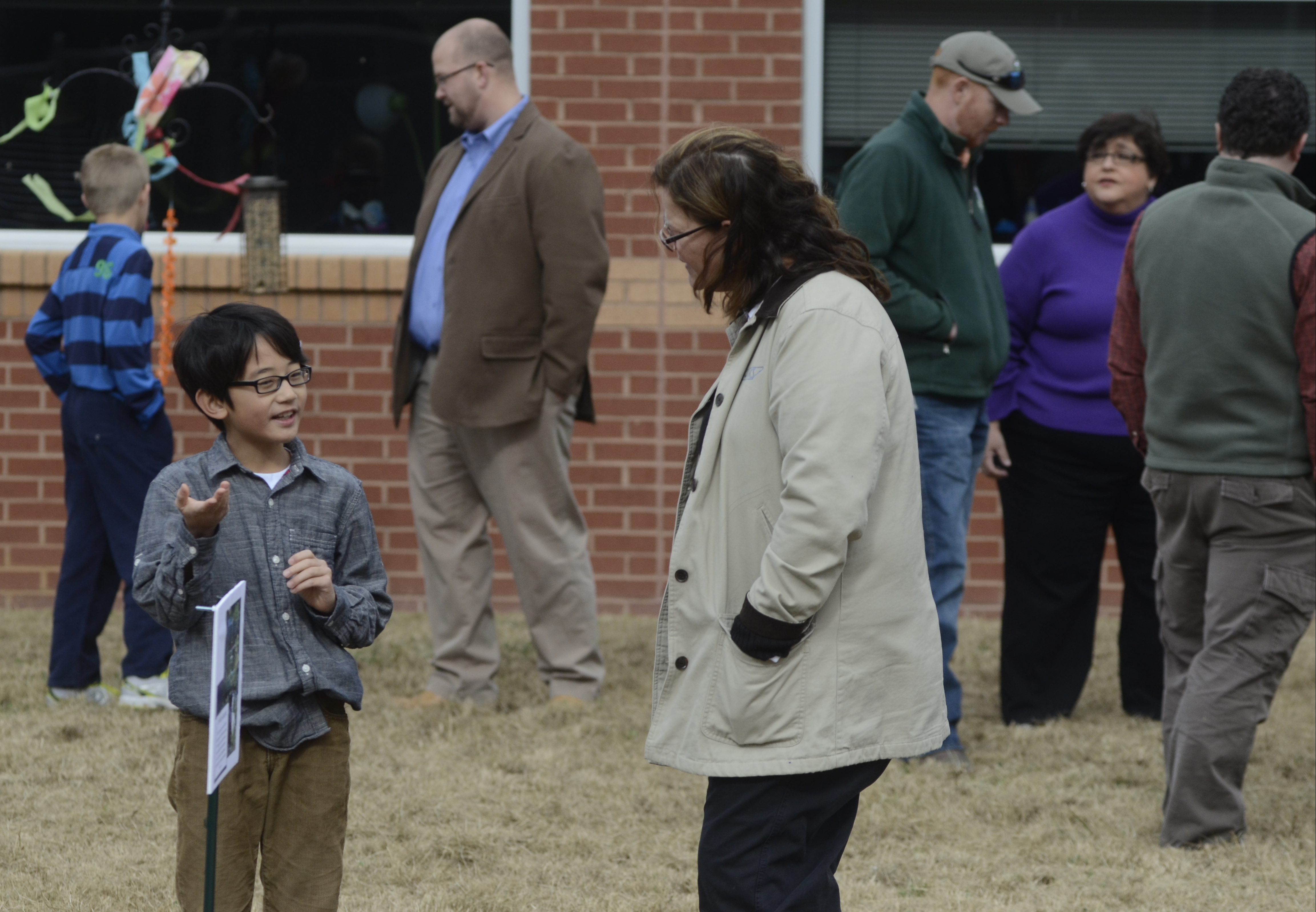Two kids to a shovel, Apison Elementary School students broke ground on Hamilton County's largest sustainability garden Thursday. Weeks of building vertical gardens and raised beds, and installing rain barrels, aquaponic totes and a keyhole garden, will allow students to get their hands dirty in the 4,000-square-foot space between the wings of the school while learning about science, math and even reading.
Part outdoor classroom, part sustainable garden, the development will give students a hands-on approach to their learning, said Principal Ron Hughes. It's all possible thanks to funding by TVA and Hamilton County Commissioner Larry Henry, and local portable aquafarming business HATponics, which will install the structures.
"I've always been interested in alternate venues for sustainability," Hughes said.
The garden also will demonstrate the importance of environmental sustainability, a problem future generations will continue to face.
"It's just smart to get students thinking this way and giving them the tools and life skills," Hughes said.
For Hamilton County Schools Superintendent Rick Smith, introducing agriculture into schools is just a part of the status quo. Hixson High School already works with HATponics.
"You're starting to see outdoor learning in [kindergarten] through 12th grade as we invest more into it," Smith said. "It all ties together to what's better for our students. Environmental activities are a part of that."
Tennessee Agriculture Commissioner Julius Johnson, in the area on an agricultural tour Thursday, was impressed with the school's desire to introduce agriculture to young students.
"These kids thrive on hands-on experience. When they can feel, see and touch something, it just is so much better for them," Johnson said. "It gives them an understanding of how the whole food system works, which is important. So many kids don't even know where their food comes from other than Kroger."
After the last frost of next spring, school students will be wrist deep in soil, turning their garden beds and planting seeds. Each grade level will have its own raised garden bed, featured alongside vertical gardens, rainwater collection barrels, a wildlife sanctuary and compost bins. Students will plant, care for and harvest food as a part of their lessons.
For example, kindergarten classes will begin by planting seeds in small transparent cups. As the plants grow, the plants will go into raised beds. Seeds planted in the spring will yield crops in the summer, giving students an opportunity to watch and observe science as it happens, Hughes said.
Because legislation prevents public schools from feeding their students with homegrown produce, fruits and vegetables grown at Apison Elementary will be donated to the community.
Contact staff writer Meghan Pittman at mpittman@timesfreepress.com or 423-757-6506.

